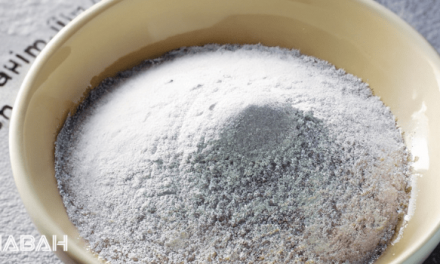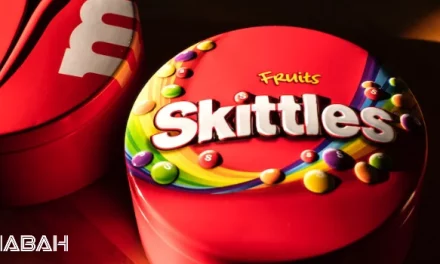As a Muslim consumer, ensuring the halal status of the products we consume is of utmost importance. In this comprehensive guide, we delve into the world of kombucha, exploring its ingredients, fermentation process, and the various factors that determine its halal status, providing you with the knowledge to make informed choices and enjoy this trendy beverage with confidence.
Understanding the Kombucha Grey Area in Islam
Kombucha is a fermented tea beverage that has ancient roots but has recently surged in popularity. This fizzy, vinegar-like drink is made by adding a symbiotic colony of bacteria and yeast (SCOBY) to sweetened black or green tea, then allowing it to ferment for 1-3 weeks.
The origins of kombucha can be traced back to China or Manchuria around 220 BCE, where it was prized for its detoxifying and energizing properties. It is also sometimes known as the “Immortal Health Elixir” due to claims it can promote longevity and stave off diseases.
Kombucha has a complex, sour taste and may offer a range of potential health benefits. Research has shown it contains antioxidants, probiotics, amino acids, and vitamins. However, there is still debate about the veracity of many health claims.
The purpose of this article is to examine whether or not kombucha would be considered halal under Islamic dietary laws.
The Arabic word halal means “permissible” while haram means “forbidden”. For a food or drink to be halal:
- It must not contain haram ingredients prohibited by the Quran
- It must not be contaminated or come into contact with anything haram during preparation
- It must not cause intoxication
There is disagreement among Muslim scholars regarding kombucha’s status, which we will analyze in this article.
Background on Kombucha
Kombucha is made by fermenting sweetened tea using a SCOBY. This is a thick, rubbery culture of bacteria and yeast that resembles a mushroom or lichen. The SCOBY metabolizes the sugar into organic acids, gases, and trace amounts of alcohol.
The typical process for making kombucha is:
- Brew a pot of black or green tea
- Add sugar while tea is hot to dissolve
- Cool tea and pour into a jar
- Add SCOBY and previously fermented kombucha as the starter liquid
- Cover jar with cloth and let sit at room temperature for 1-3 weeks
- SCOBY ferments the tea, producing the signature sour kombucha
Historically, kombucha originated in northeast China, specifically the Manchurian region. It was known as the “Divine Che” and was prized for its detoxifying properties. Stories spread of people living extraordinarily long lives from drinking kombucha daily.
These tales led it to be known as the “Immortal Health Elixir” when it spread to Japan and Russia. However, much of the early history is uncertain and origin stories vary by region.
Kombucha has a distinct sour, vinegar-like taste. It may offer a range of antioxidants, probiotics, B vitamins, and other nutrients from the fermentation process. However, the research on specific benefits is still preliminary.
Islamic Principles on Food & Drink
The Quran and hadith provide guidance on what foods and drinks are considered halal and haram for Muslims. Some key principles are:
-
Avoidance of alcohol and intoxicants – Consuming alcohol is clearly prohibited in Islam. The Quran states “O you who have believed, indeed, intoxicants, gambling, [sacrificing on] stone alters [to other than Allah], and divining arrows are but defilement from the work of Satan, so avoid it that you may be successful.”
-
No contamination with haram ingredients – Foods and drinks must not contain or come into contact with anything prohibited like pork or alcohol. There should also be no cross-contamination during preparation, storage, or serving.
-
Permissibility of properly processed fermented drinks – Though alcohol is forbidden, drinks like vinegar and non-alcoholic beer that result from a natural fermentation process are allowed as long as no intoxicating effect remains.
-
Caution over doubtful or questionable items – Muslims are advised to exercise caution and avoidance when it comes to foods or drinks with uncertain status according to Islamic law. The Prophet Muhammad (PBUH) said “Both legal and illegal things are obvious, and in between them are (suspicious) doubtful matters. So whoever forsakes those doubtful things lest he may commit a sin, will definitely avoid what is clearly illegal…”.
Debate on Kombucha’s Halal Status
There is disagreement among Islamic scholars regarding whether kombucha would be considered halal or haram to drink. The key points of debate include:
Argument it is halal:
- Kombucha only contains trace amounts of alcohol from the natural fermentation process, usually less than 0.5% ABV .
- The alcohol is not added artificially but results spontaneously from the SCOBY fermenting the tea.
- The Prophet Mohammad (PBUH) is said to have allowed nabidh, fermented date palm sap with 0.5% or less alcohol.
Argument it is haram:
- There is still ethyl alcohol present in kombucha, regardless of the quantity.
- Alcohol being produced naturally rather than added does not exempt it per Hanafi and Shafi’i schools.
- Difficult to guarantee alcohol below 0.5% threshold, varies by fermentation conditions.
Scholarly opinions are mixed, with some declaring kombucha halal citing the negligible alcohol content, and others prohibiting it due to uncertainty over fermentation and the existence of any alcohol at all.
Is Kombucha Halal – Frequently Asked Questions
Is kombucha halal or haram?
Kombucha is a fermented tea and its halal status is a topic of debate among scholars. While some argue that it is permissible due to the fermentation process and minimal alcohol content, others consider it haram because of the presence of alcohol. The final decision depends on the interpretation of Islamic law and personal beliefs.
What is kombucha?
Kombucha is a fermented drink made by combining tea and a culture of bacteria and yeast called SCOBY (Symbiotic Culture of Bacteria and Yeast). The SCOBY consumes the sugar in the tea, converting it into various acids and gases through the fermentation process.
Does kombucha contain alcohol?
Yes, kombucha contains a small amount of alcohol as a by-product of fermentation. The alcohol content typically ranges from 0.5% to 2% ABV (alcohol by volume). However, it is important to note that commercial kombucha brands usually undergo processes to reduce the alcohol content to meet legal requirements for non-alcoholic beverages.
Can Muslims drink kombucha?
The permissibility of drinking kombucha depends on the individual’s interpretation of Islamic law. Some scholars believe that consuming a small amount of alcohol through kombucha is permissible as long as it does not intoxicate. Others consider any amount of alcohol as haram, regardless of its effects. It is recommended for individuals to consult with a knowledgeable scholar to make an informed decision.
How much alcohol is considered halal?
The amount of alcohol considered permissible or halal varies among different interpretations of Islamic law. While some scholars allow a trace amount of alcohol (less than 0.5% ABV), others argue for zero tolerance towards any alcoholic content. It is essential to seek guidance from a religious authority regarding this matter.
Is homemade kombucha halal?
The halal status of homemade kombucha depends on the ingredients used and the fermentation process. If the ingredients are halal and proper measures are taken to control the alcohol content, homemade kombucha can be considered halal. However, it is advised to consult with a knowledgeable scholar for specific guidance.
Are there any haram ingredients in kombucha?
In general, kombucha is made with halal ingredients such as tea, sugar, and water. However, some commercial brands may add additional flavorings or ingredients that could potentially be considered haram. It is advisable to read the
Conclusion
In conclusion, there are strong arguments and scholarly opinions on both sides of whether kombucha would be considered halal or haram for Muslims to consume. Some key points are:
-
The debate centers around the trace amounts of alcohol produced during the natural fermentation process.
-
Scholars permitting kombucha cite the typically low alcohol content below 0.5%. Those prohibiting it argue alcohol is still present.
-
The process results in some uncertainty over exact alcohol levels, which varies by brand and batch.
-
Hanafi and Shafi’i schools state even naturally occurring alcohol makes a drink prohibited. Others argue negligible alcohol is allowed.
-
Certified halal kombucha options exist, though may still be questionable to some.
-
Caution is advised when alcoholic content cannot be guaranteed based on principles to avoid doubtful matters.
Ultimately, the permissibility of kombucha depends on each Muslim’s own interpretation and adherence to Islamic dietary laws. Further research by qualified scholars is needed, especially on verifying fermentation processes. The decision for or against consuming kombucha remains an individual choice for Muslims.




